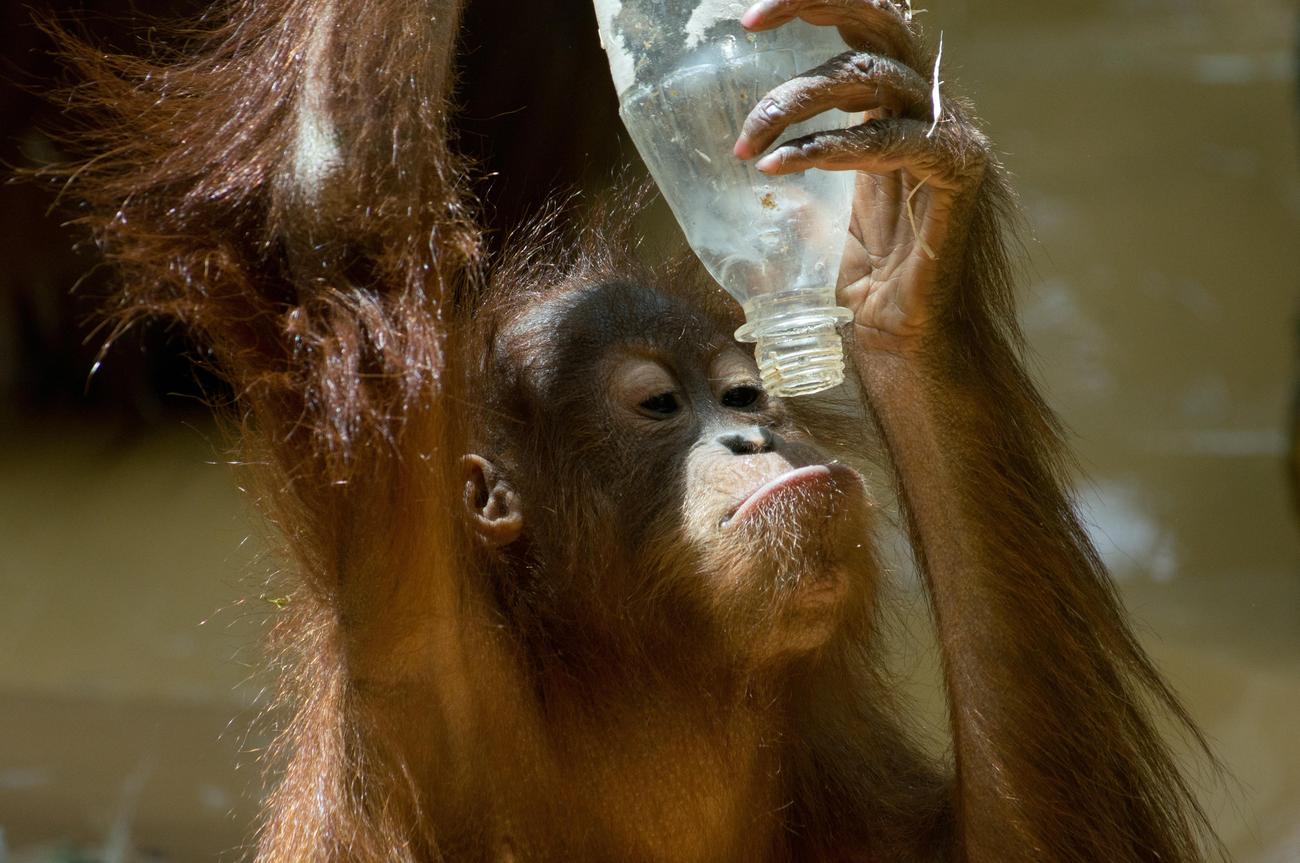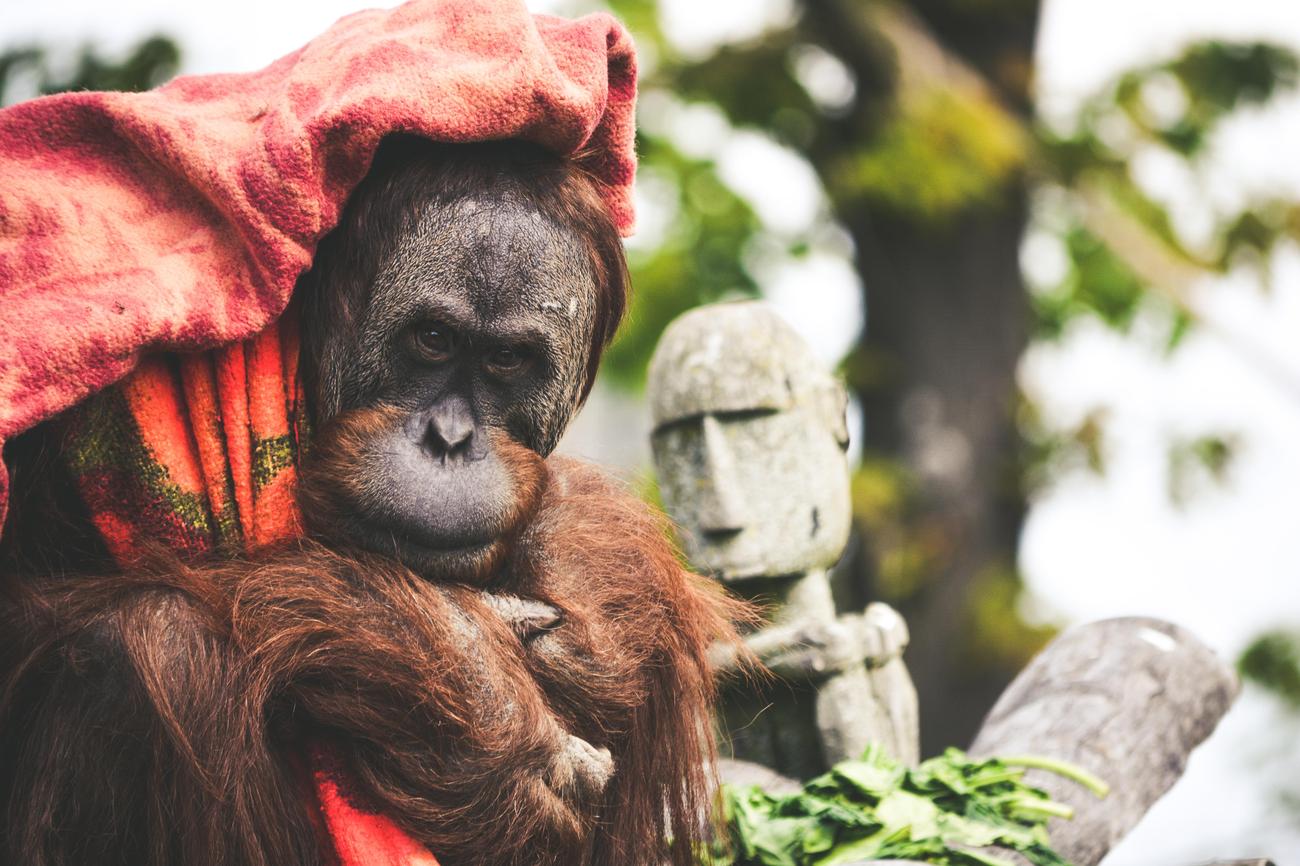In the vast and diverse tapestry of our planet’s ecosystems, some species stand out as ambassadors of both beauty and vulnerability. Among them, the endangered orangutan species holds a prominent place. Saving Orangutans: Urgent Measures to Protect Endangered Species is an article that delves deep into the plight of these extraordinary creatures. As an accomplished environmental journalist, I have witnessed firsthand the challenges that orangutans face, from destructive deforestation to the detrimental impacts of illegal wildlife trade. Join me on this urgent journey as we explore the crucial role these magnificent creatures play in maintaining our delicate ecosystem and the measures that must be taken to secure their survival.

Endangered Orangutan Species
Orangutans, the magnificent great apes of Southeast Asia, are teetering on the brink of extinction. With their luscious red hair and intelligent eyes, orangutans have captivated the hearts of many. However, their future hangs by a thread, as their numbers dwindle due to relentless habitat destruction and the illegal wildlife trade.
There are three species of orangutans: the Bornean, Sumatran, and Tapanuli. While the Bornean orangutan is considered endangered, the Sumatran and Tapanuli orangutans are both critically endangered. Shockingly, the Tapanuli orangutan is the most endangered of all great apes, with no more than 800 individuals remaining. Time is running out, and urgent measures are needed to protect these precious creatures.
Habitat Loss: A Silent Threat
One of the primary threats to orangutans is habitat loss. The lush rainforests they call home are rapidly disappearing, giving way to deforestation for palm oil production and logging. This relentless destruction wreaks havoc on orangutans and their delicate ecosystems. Imagine a vibrant garden being ripped apart, leaving the flowers to wither and die. That’s what’s happening to the orangutans’ forest. The consequences are dire, not only for these magnificent creatures but also for the entire ecosystem they inhabit.
The Role of Orangutans in Ecosystems
Orangutans play a vital role as “gardeners of the forest.” With their penchant for fruit, they are nature’s seed dispersers. As they move through the forest, they unknowingly plant the seeds of countless plants, ensuring the diversity and continuity of the ecosystem. Like the conductor of an orchestra, a single orangutan has the power to orchestrate the symphony of life in its habitat. Their role in maintaining the balance of nature cannot be underestimated.
Conservation Efforts: A Beacon of Hope
Thankfully, there is hope. Organizations such as the World Wildlife Fund (WWF) and the National Zoo are working tirelessly to raise awareness and implement conservation strategies for orangutans. These efforts include establishing protected areas and promoting sustainable palm oil production. These vital initiatives give us a glimmer of hope in the battle to save the orangutans.
Taking Action: What Can You Do?
Each one of us can contribute to the fight to protect endangered orangutan species. Here are some steps you can take to make a difference:
Educate Yourself: Learn more about the plight of orangutans. Understand the reasons behind their decline and the urgent need for conservation.
Make Informed Choices: Support sustainable palm oil production by opting for products labeled “RSPO-certified.” By doing so, you ensure that your choices do not contribute to the destruction of orangutan habitats.
Spread Awareness: Share your knowledge with family, friends, and colleagues. Social media is a powerful tool for education and raising awareness.
Support Conservation Organizations: Donate to organizations actively involved in orangutan conservation efforts. Every contribution, no matter how small, can help make a difference.
In conclusion, the endangered orangutan species hang in the balance. Their habitat loss and the threat of extinction are urgent matters that require immediate attention. Each one of us has the power to be a voice for these remarkable creatures and contribute to their preservation. Together, we can protect orangutans and ensure a future where they continue to roam the forests, gardening the ecosystem and captivating our imaginations. As Jane Goodall once said, “What you do makes a difference, and you have to decide what kind of difference you want to make.” [Endangered orangutan species]
Orangutans are awe-inspiring creatures that inhabit the lush rainforests of Southeast Asia. These remarkable primates are unfortunately facing a threat to their existence. Ever wondered why orangutans are endangered? The reasons behind their endangered status are as alarming as they are heartbreaking. Deforestation, illegal hunting, and the destruction of their natural habitats are some of the factors that have pushed these gentle giants towards the brink of extinction. To learn more about why orangutans are endangered, click here: Why Are Orangutans Endangered. Dive into the depths of their struggle and discover what we can do to protect these incredible creatures before it’s too late. Let’s work together to ensure a future where orangutans can roam freely and thrive in their natural habitats.
FAQ
Q: How many species of orangutans are there?
A: There are three species of orangutan: the Bornean, Sumatran, and Tapanuli.
Q: What is the conservation status of the Bornean orangutan?
A: The Bornean orangutan is considered endangered.
Q: What is the conservation status of the Sumatran and Tapanuli orangutans?
A: Both the Sumatran and Tapanuli orangutans are critically endangered.
Q: How many Sumatran orangutans are estimated to be left?
A: There are approximately 7,500 individuals of the Sumatran orangutan species left.
Q: How many Tapanuli orangutans are left in existence?
A: The Tapanuli orangutan is the most endangered of all great apes, with no more than 800 individuals remaining.
- Unlock 6000+ words beginning with he: A comprehensive analysis - April 20, 2025
- Mastering -al Words: A Complete Guide - April 20, 2025
- Master Scrabble: High-Scoring BAR Words Now - April 20, 2025
















